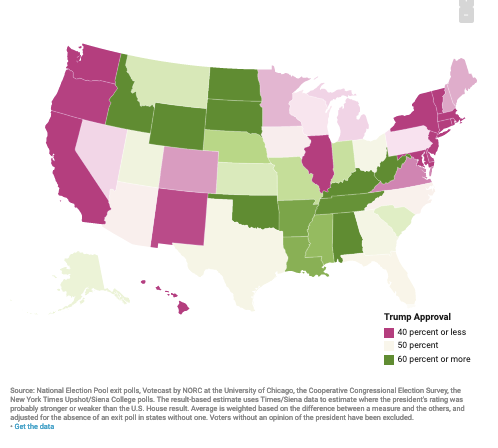President Trump’s approval ratings are under water in national polls. His position for re-election, on the other hand, might not be quite so bleak.
His advantage in the Electoral College, relative to the national popular vote, may be even larger than it was in 2016, according to an Upshot analysis of election results and polling data.
That persistent edge leaves him closer to re-election than one would think based on national polls, and it might blunt any electoral cost of actions like his recent tweets attacking four minority congresswomen.
For now, the mostly white working-class Rust Belt states, decisive in the 2016 election, remain at the center of the electoral map, based on our estimates. The Democrats have few obviously promising alternative paths to win without these battleground states. The president’s approval ratings remain higher in the Sun Belt battlegrounds than in the Rust Belt, despite Democratic hopes of a breakthrough.
Legislative Activity and Popular Opinion
-
- See also: Interstate compact
The focal point of national popular vote advocates is the National Popular Vote Interstate Compact, an agreement among several states to award their electoral votes to the winner of the national popular vote, regardless of that candidate’s performance in their state. The basic idea of the National Popular Vote Interstate Compact is that the Electoral College would remain intact, but if, for example, the Republican presidential candidate won the national popular vote, his or her electors in states that are part of the compact would automatically be declared the winners. As of 2016, 10 states and Washington, D.C., (see map below) had signed on to the National Popular Vote Interstate Compact. These jurisdictions represent 165 electoral votes. These states have not, however, enacted the compact. In signing on to the compact, they have agreed to enact its contents only after enough states have joined the compact to equal a majority of available electoral college votes.[12] Read more about interstate compacts and the legal issues surrounding them here.

*States in green have enacted the National Popular Vote Interstate Compact. States in yellow have considered the law in their state legislatures.




